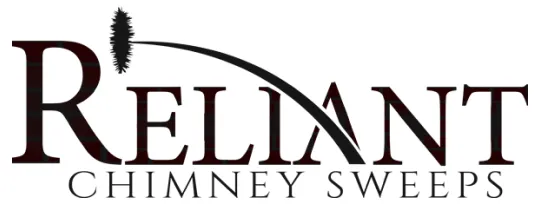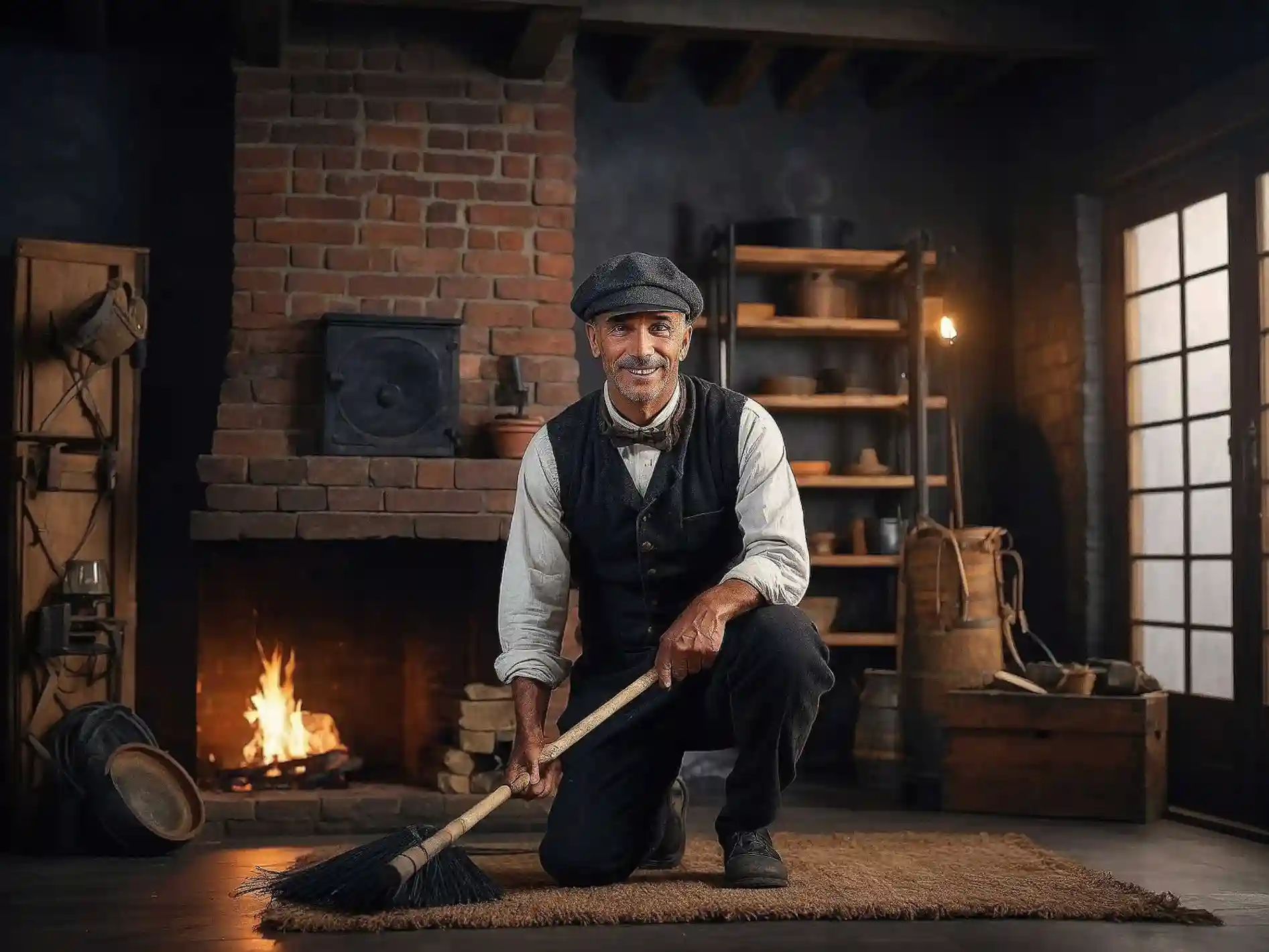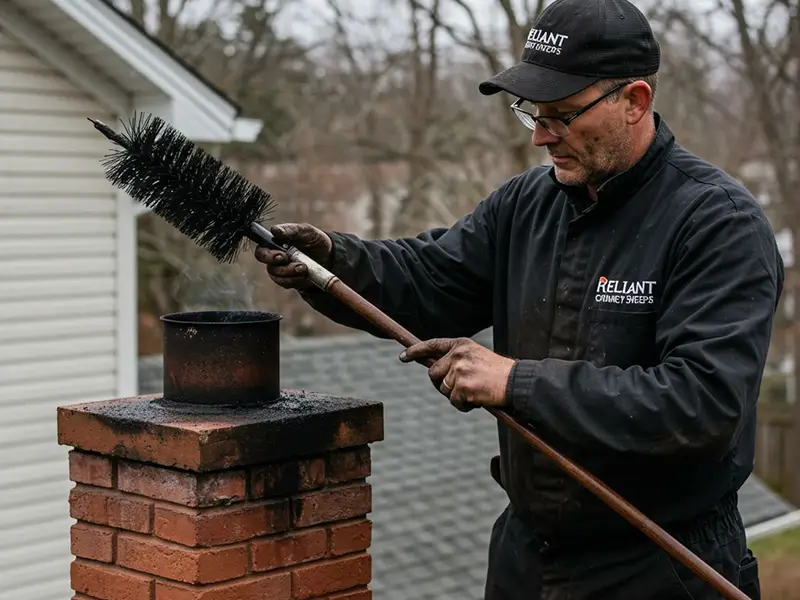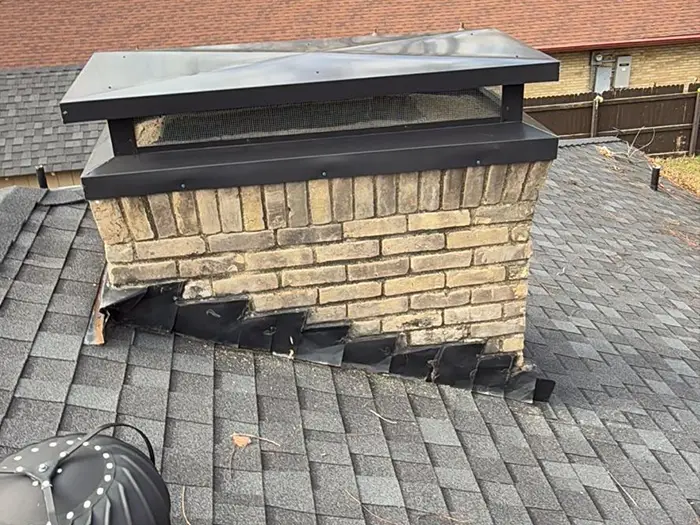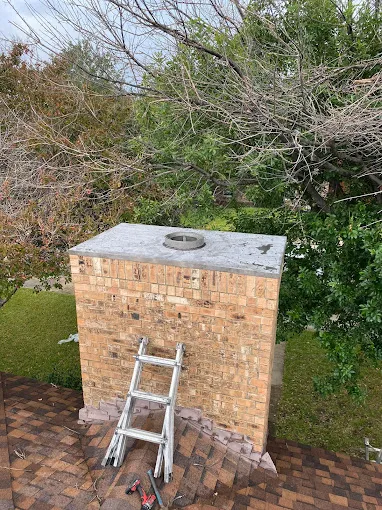As the temperature drops and winter settles in, there’s nothing more comforting than gathering around a warm, crackling fire. However, before lighting your fireplace this winter, it’s essential to ensure your chimney is clean and safe. Regular chimney cleaning is not just about maintaining appearances—it’s about improving safety, efficiency, and longevity. Here, we’ll explore the key benefits of cleaning your chimney this winter season and why it’s a critical part of home maintenance.
1. Reduce the Risk of Chimney Fires
One of the most significant benefits of chimney cleaning is reducing the risk of chimney fires. Creosote, a tar-like byproduct of burning wood, accumulates on the interior walls of your chimney. This substance is highly flammable and can ignite if it builds up excessively.
Why It Matters:
Chimney fires can cause extensive damage to your chimney and even spread to the rest of your home. Regular cleaning removes creosote buildup, drastically reducing the chance of a fire.
Did You Know?
The National Fire Protection Association (NFPA) recommends having your chimney inspected and cleaned at least once a year to prevent creosote buildup.
2. Improve Indoor Air Quality
A dirty chimney can release harmful substances into your home, affecting the air you breathe. Soot, ash, and creosote particles can enter your living space, causing respiratory irritation and allergies.
Why It Matters:
Maintaining a clean chimney ensures proper airflow, keeping smoke and harmful pollutants out of your home. This is especially important for households with children, elderly members, or individuals with respiratory issues.
3. Prevent Smoke Backdrafting
When your chimney is blocked or dirty, smoke from the fireplace may not exit efficiently. Instead, it can backdraft into your home, creating an unpleasant and potentially hazardous environment.
Why It Matters:
Smoke contains carbon monoxide, a colorless, odorless gas that can be life-threatening at high levels. Regular chimney cleaning ensures unobstructed airflow, preventing smoke from entering your home and keeping your family safe.
4. Enhance Heating Efficiency
A clean chimney allows your fireplace or wood stove to operate more efficiently. When soot and debris block the flue, your fireplace has to work harder to draw air, reducing its overall efficiency.
Why It Matters:
A clean chimney ensures proper airflow, allowing fires to burn hotter and cleaner. This means you’ll use less wood while enjoying a warmer home, saving you time and money.
5. Prevent Structural Damage
Moisture is a chimney’s worst enemy, and a dirty or clogged chimney is more susceptible to water damage. Soot and creosote absorb moisture, which can seep into the bricks and mortar, causing them to deteriorate over time.
Why It Matters:
Chimney cleaning helps remove moisture-absorbing debris, protecting your chimney’s structure. Additionally, regular maintenance allows professionals to spot cracks or damage early, preventing costly repairs down the line.
6. Extend Chimney Lifespan
Your chimney is a long-term investment in your home, and regular cleaning is essential for preserving its longevity. Debris, moisture, and neglect can shorten the lifespan of your chimney, leading to expensive repairs or even replacement.
Why It Matters:
Routine cleaning removes damaging elements, ensuring your chimney remains functional and safe for years to come. Proper maintenance is far more cost-effective than dealing with a collapsed or severely damaged chimney.
Contact the professional chimney sweeps now to extend the lifespan of your chimneys >>>
7. Avoid Costly Repairs
Neglected chimneys can develop significant problems over time, from masonry cracks to rusted dampers. Many of these issues are caused by buildup, blockages, or water damage—all of which can be addressed with regular cleaning.
Why It Matters:
By keeping your chimney clean, you’ll catch minor issues before they escalate into major, costly repairs. For instance, removing creosote buildup can prevent flue damage, while clearing blockages reduces strain on the structure.
8. Keep Animals Out
During the winter, animals such as birds, squirrels, and raccoons often seek warmth in chimneys. Their nests and droppings can block the flue, creating a fire hazard and obstructing airflow.
Why It Matters:
Chimney cleaning removes any debris or nests left by animals, ensuring your chimney functions properly. Installing a chimney cap as part of your maintenance plan can also prevent animals from entering in the first place.
9. Eliminate Unpleasant Odors
A dirty chimney can produce foul odors, especially during the humid months. Creosote, soot, and debris left in the chimney can create musty or burnt smells that linger in your home.
Why It Matters:
A thorough cleaning removes the source of these odors, leaving your home smelling fresh and inviting. This is particularly beneficial when using your fireplace to entertain guests during the holiday season.
10. Ensure Compliance with Insurance Policies
Many homeowners’ insurance policies require regular chimney inspections and maintenance to remain valid. If a fire or damage occurs due to a neglected chimney, your claim may be denied.
Why It Matters:
Keeping your chimney clean not only protects your home but also ensures you meet the requirements of your insurance policy. Documenting annual inspections and cleanings can be crucial in case of an insurance claim.
The Professional Advantage
While some homeowners attempt DIY chimney cleaning, hiring a professional is the safest and most effective option. Certified chimney sweeps have the tools and expertise to:
- Thoroughly remove creosote buildup.
- Inspect for structural damage or blockages.
- Ensure compliance with safety standards.
- Protect your home from mess during the cleaning process.
At Reliant Chimney Sweeps, we use advanced tools like chimney cameras, HEPA vacuums, and spinning power brushes to deliver comprehensive cleaning services.
How Often Should You Clean Your Chimney?
The frequency of chimney cleaning depends on how often you use your fireplace:
- Frequent Users: Clean your chimney after every 50-70 fires.
- Occasional Users: Schedule an annual cleaning and inspection.
- Wood Stove Users: Clean your chimney at least twice a year, as stoves often produce more creosote.
Tips for Maintaining a Clean Chimney
In addition to professional cleanings, these tips can help keep your chimney clean and safe:
- Burn Seasoned Wood: Dry hardwoods produce less creosote than green or wet wood.
- Install a Chimney Cap: Prevent debris, animals, and rain from entering your chimney.
- Use a Fireplace Grate: A grate improves airflow, helping wood burn more efficiently.
- Schedule Regular Inspections: Annual inspections identify issues early and ensure your chimney is in top condition.
The Winter Difference
Winter is the most important time to prioritize chimney cleaning. With increased fireplace usage during the colder months, your chimney must be in peak condition to handle the demands. A clean chimney ensures a safer, warmer, and more efficient home throughout the season.
Closing Thoughts
Cleaning your chimney this winter is essential for ensuring your home’s safety, comfort, and efficiency. A well-maintained chimney reduces the risk of fires, improves heating performance, and protects your indoor air quality, allowing you to enjoy your fireplace worry-free. By investing in regular chimney cleaning, you’re safeguarding your home and family while maximizing the lifespan of your chimney and fireplace.
Don’t wait for problems to arise—take proactive steps now to prepare your chimney for the demands of the season. For expert chimney cleaning and maintenance, contact Reliant Chimney Sweeps today. Stay warm, safe, and cozy this winter with a clean, efficient chimney!
